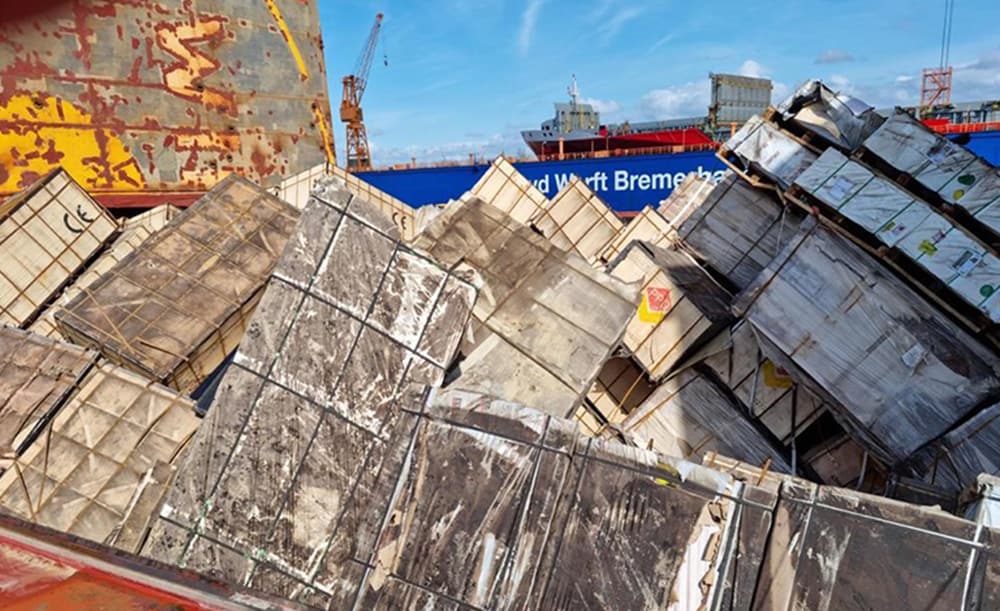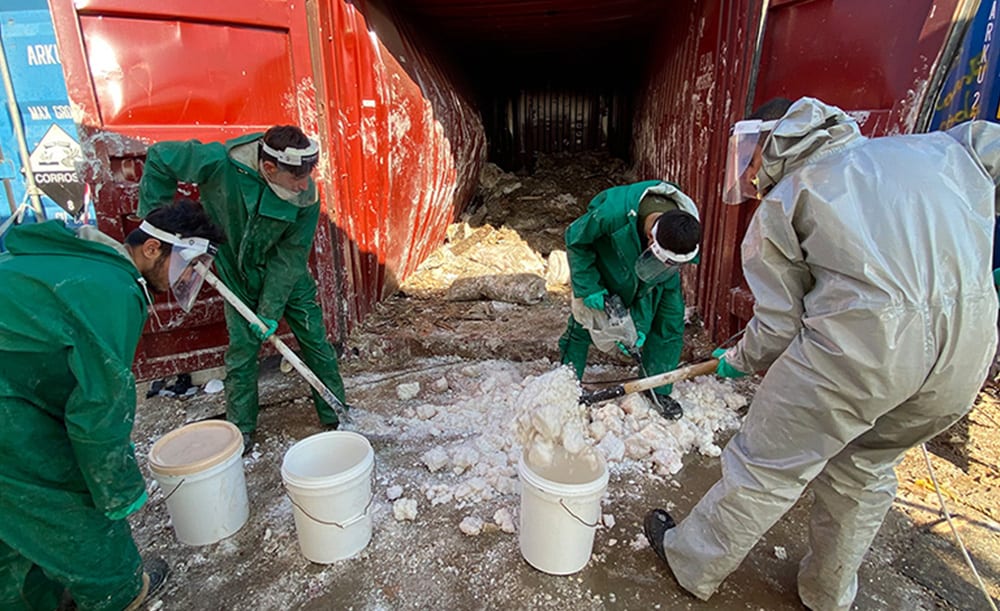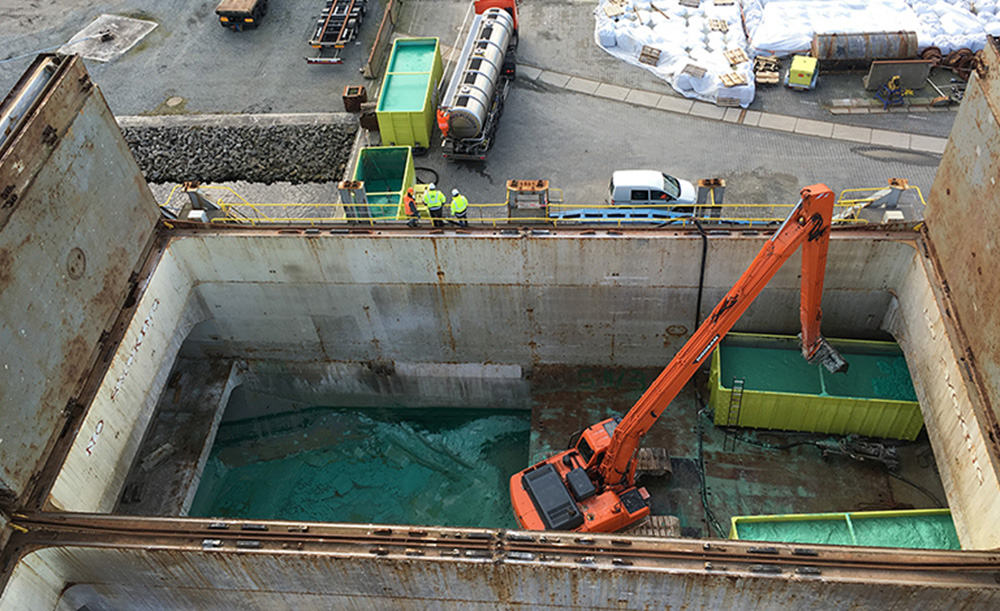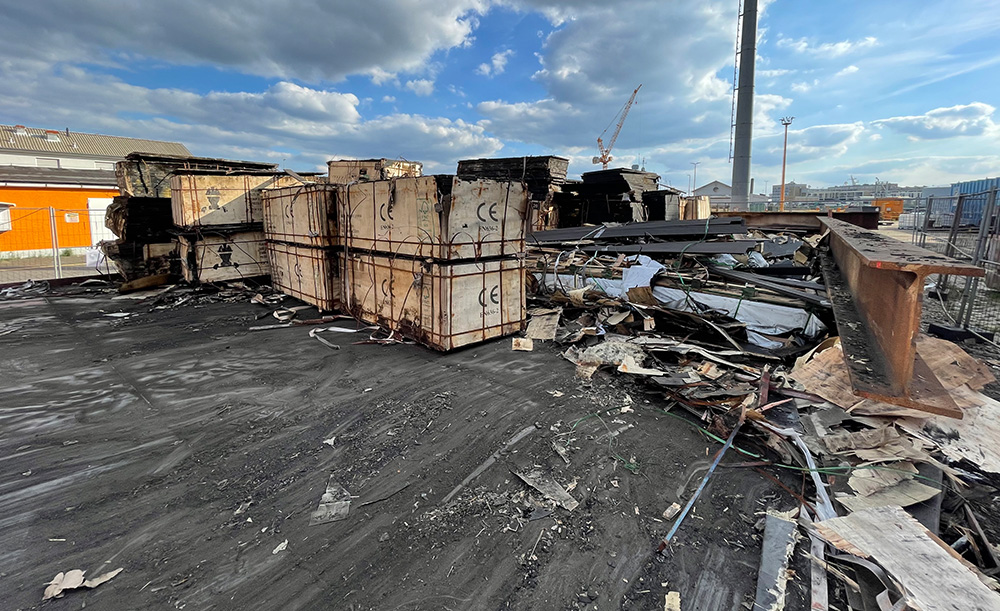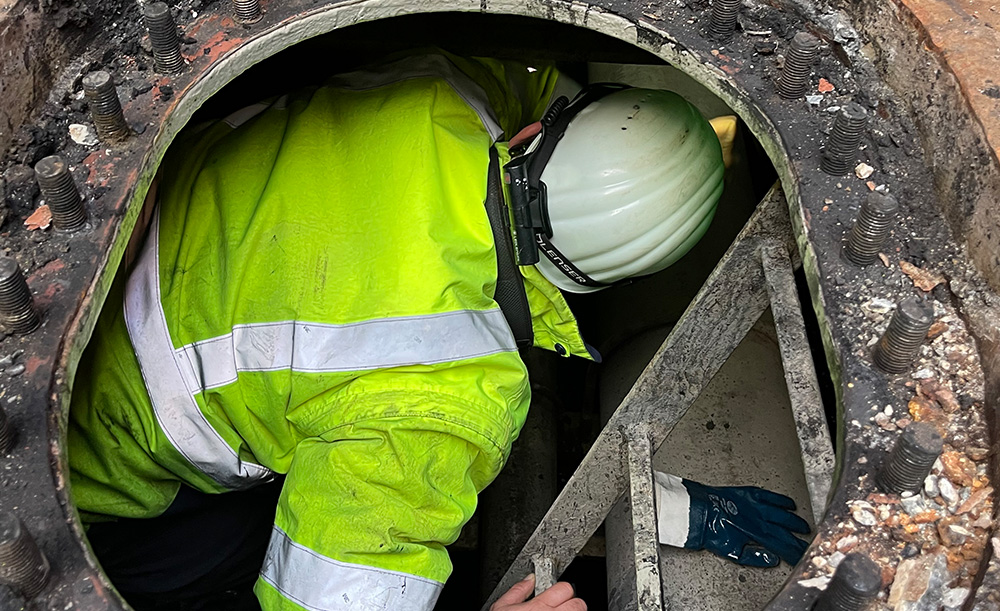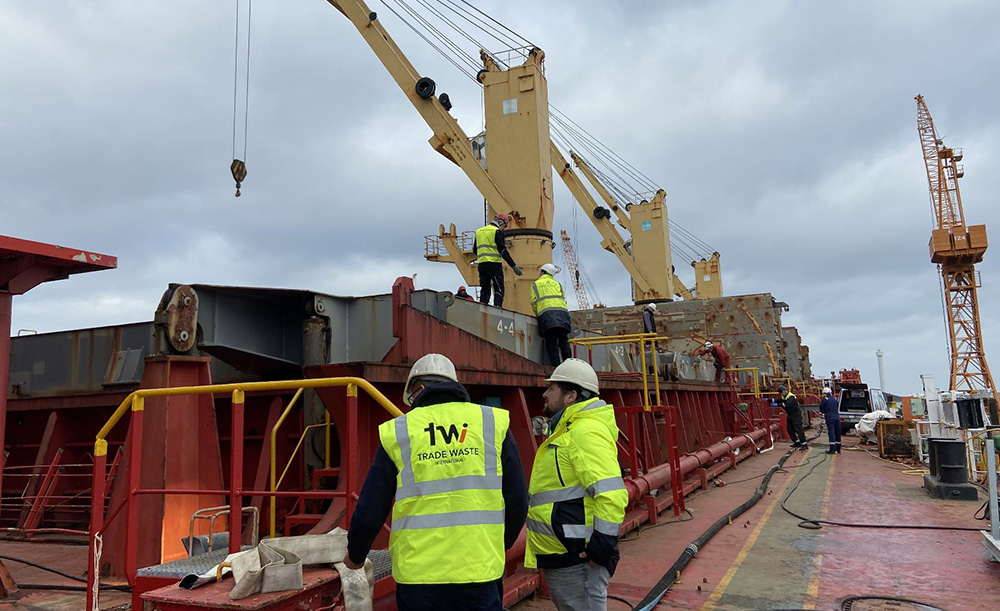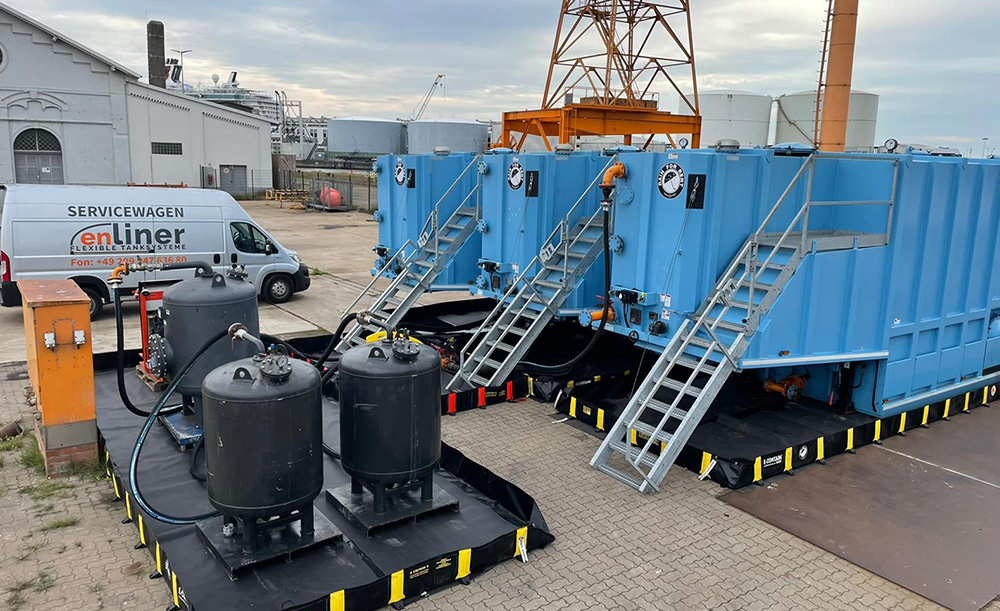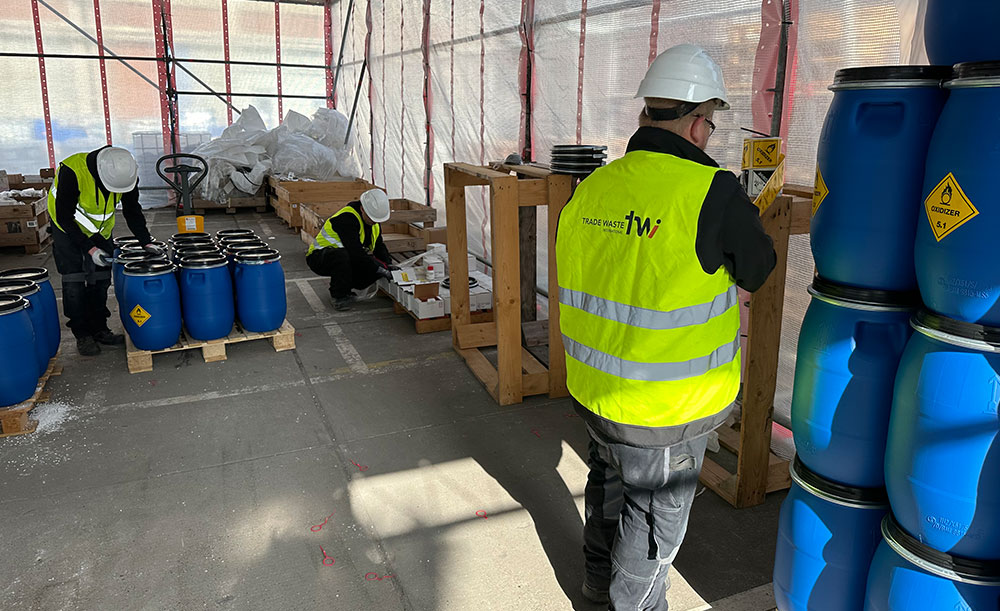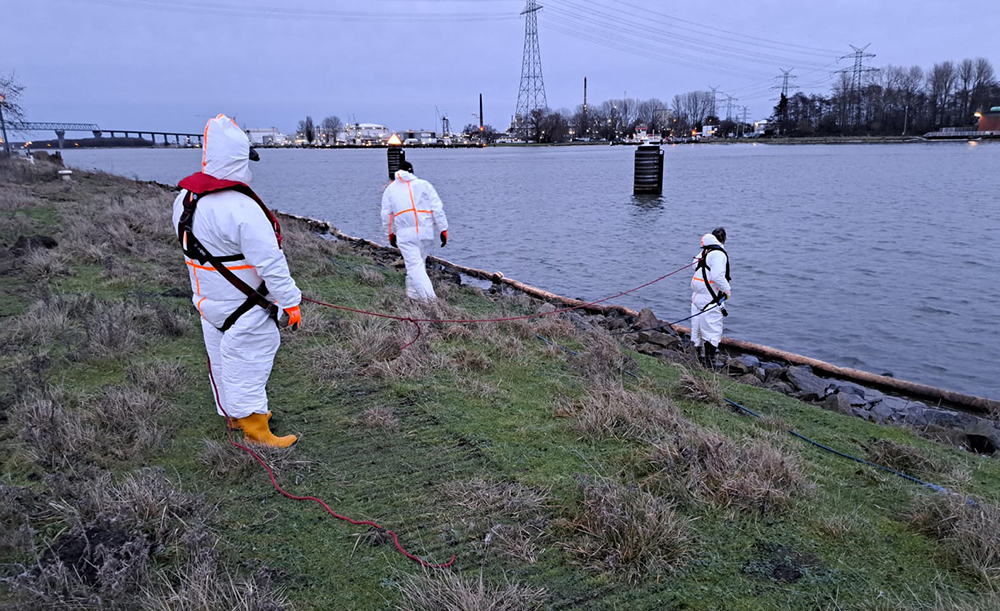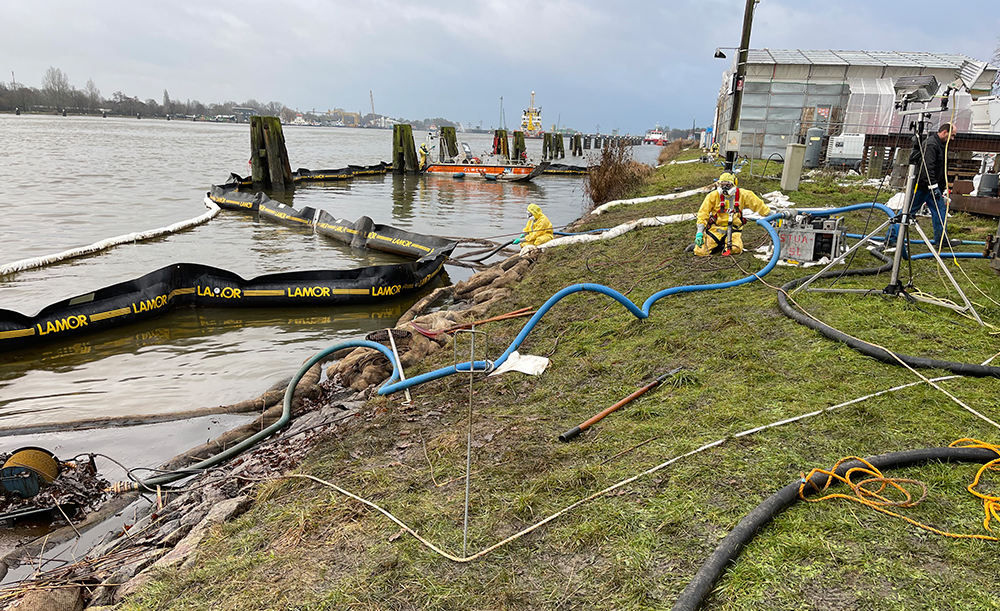Trade Waste International Professional waste management
Trade Waste International GmbH is an internationally active specialist in the disposal and recycling of waste from damage situations and accidents, production and trade, the disposal and recycling of construction waste and the recycling of power plant residues. We find the right recycling for every type of waste!
Promotion of the circular economy
The European Union produces more than 2.5 billion tons of waste annually. Municipal waste accounts for only about one tenth of this. Most of the waste thus comes from industry. This includes tailings from mining, waste from production and trade, construction and demolition waste (including road demolition) and waste requiring special monitoring.
The goal of the European Union is therefore to promote the circular economy. This refers to a model of production and consumption in which existing materials and products are used, refurbished and recycled for as long as possible. In this way, the life cycle of the products is extended. In practice, according to the European Union, this means reducing waste to a minimum by reusing it productively over and over again to continue generating value.
Focus on conservation of natural resources
In Germany, the Recycling Management Act (KrWG) applies for this reason. The purpose of the Act is to promote the circular economy to conserve natural resources and to ensure the protection of people and the environment in the generation and management of waste. At the beginning there is always the will to get rid of, followed by the meaningful reuse. This makes an important contribution to the implementation of energy and climate policy goals.
Circuit
Waste in the EU
0
bn.
Tons/year
approx.
0
%
Municipal waste
approx.
0
%
Industrial waste
Climate neutrality until 2050
Why we need the circular economy
As EU Climate Action Commissioner Frans Timmermans points out, a closed loop economy is needed to achieve climate neutrality by 2050, preserve our natural environment and strengthen our economic competitiveness. Today, he said, the economy is still predominantly linear in design, and only 12 percent of secondary materials and resources make their way back into the economy.
Your service provider Trade Waste International
We as Trade Waste International GmbH stand for the promotion of the circular economy! In this way, we want to do our part to protect the planet and natural resources. The United Nations Sustainable Development Goal number 12 “Sustainable Consumption and Production” guides our actions. We help companies across all industries manage their waste professionally and are professionals in consistently increasing the safety and profitability of your waste management. We take commercial and industrial waste and put it on the appropriate recycling path. Our focus is on the recycling of waste from production and trade, the disposal and recycling of construction waste and the recycling of power plant residues. We also find optimal solutions for the treatment and disposal of waste from damage situations and accidents and offer the appropriate transport route for every load via our professional Cargo Solutions. Our promise to you: We will find the right recycling for every type of waste and will work for you throughout Germany and internationally.
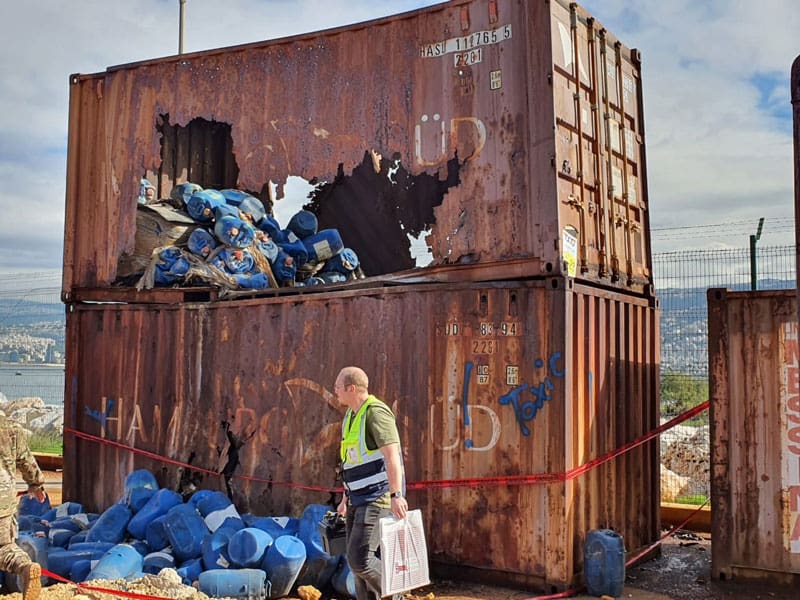
About us
Large network in the waste disposal and recycling industry
We are licensed as a trader and broker of hazardous waste by the responsible supervisory authority in accordance with § 54 of the Closed Substance Cycle Waste Management Act. Our expert team organizes and monitors the collection, transport and recycling of waste and is in close contact with you as a company, the authorities and our partners in the waste disposal and recycling industry. Through our large network, we are always able to solve special situations and requirements for you.
Hazardous waste disposal
One focus of our work is the handling and disposal of so-called hazardous waste. According to the Federal Environment Agency, this includes various types of waste with defined hazard characteristics. The European Waste Catalogue (EWC), which was incorporated into national law in Germany with the Waste Catalogue Ordinance (AVV), is decisive for the designation and classification of waste in the European Union. Hazardous waste poses a risk to health and/or the environment and is subject to special regulations in disposal. Adherence to these disposal routes and procedures ensure safe and environmentally sound destruction of the contained pollutants. Trade Waste International is your experienced service provider and trustworthy partner.
Your security of supply is important to us
Trade Waste International works for industrial companies as a project partner or on a permanent basis. Upon request, we guarantee complete disposal of your industrial waste throughout the year, no matter what the volume. In this way, we would like to make your life easier and provide you with a high level of planning and legal certainty. For this purpose, we discuss with you the purchase quantity and purchase period as well as the transport conditions and, of course, ensure compliance with all legal requirements, even for complex processes. We offer the development and implementation of operational solutions, such as the repackaging of hazardous materials and chemicals and the classification of waste for transport and further disposal.
Working for you worldwide
If local waste treatment capacities are insufficient or not available at all, we can access our international waste disposal network as a trader and broker of waste. In general, we can also assist you with your cross-border disposal projects and are happy to take on complex mandates. One example of our international activity is our support for the specific disposal and further treatment of overseas containers of highly toxic chemicals from the port of Beirut following the devastating explosion in August 2020. We fully take over the legally obligatory notification procedure and the related communication with you and the authorities according to the Basel Convention on the Control of Transboundary Movements of Hazardous Wastes and their Disposal for transboundary movements of wastes requiring a permit and those not on the “Green List”.
Services
Expertise
Experience
Equipment
Expertise
The disposal of waste requires special knowledge within the framework of the allocation and provision of waste fractions. In particular, the allocation and provision of special fractions requires special knowledge in the allocation in accordance with the relevant legal provisions in waste legislation:
- Operating chemicals
- Laboratory Chemicals
- Process waste e.g. from electroplating processes
- Chemicals in the context of safeguarding/revision processes, etc.
- Operating chemicals/hazardous materials from warehouse clearance/clearance of old properties
- Business cessation
Further, supplementary acceptance conditions of the disposal facilities, transport regulations, occupational health and safety, etc. must be taken into account.
In particular, the following regulations apply:
- Recycling Management Act (KrWG)
- Waste Catalogue Ordinance (AVV), Ordinance on Waste Recovery and Disposal Records (NachwV), Commercial Waste Ordinance (GewAbfV)
- ADR (Rule ADR and Exception 20)
- Ordinance on Hazardous Substances (GefStoffV)
- Relevant German Statutory Accident Insurance (DGUV) and Technical Rules for Hazardous Substances (TRGS) as well as other regulations from occupational health and safety
- LAGA regulations and substitute building materials ordinance
Experience
TWI has many years of experience and can support you in this task. Especially for the packaging of waste, which is to be carried out in coordination with your company, TWI can refer to special experience. The following service processes are primarily used:
- Waste survey as part of an on-site physical inspection by a waste specialist
- If necessary, sampling according to PN 98 of waste fractions for analytical evaluation.
- Written evaluation of the waste intake/analysis results with presentation of the waste classification according to AVV and hazardous material classification of the waste fractions
- Coordination of the packaging form with all parties involved, taking into account all legal regulations
- Presentation of the procedure (procedure concept) including a GBU with procedure description
- If necessary, coordination with authorities involved, etc., e.g. as part of a fire damage restoration project
- Preparation of the required proofs of disposal within the framework of the verification procedure
- Auditing of the disposal/recycling facilities
Packing and preparation of the waste for disposal/recycling - Preparation of the required transport documents in accordance with ADR and waste legislation
- Control of the performed recovery/disposal and keeping the waste registers
For the services described above, extensive knowledge of both the relevant legal regulations and, to a considerable extent, knowledge of the material properties and further chemical or physical behavior in handling hazardous materials (e.g. when repackaging highly flammable liquids with toxic side hazards) is indispensable.
The service is performed and accompanied by highly qualified personnel with many years of professional experience:
- Engineering professionals
- Skilled worker
- Environmental Officer
- Dangerous goods officers (road, rail, sea)
- Specialists according to TRGS 519, 520 and DGUV 101-004
Equipment
In addition to personnel deployment, additional technical equipment is often required. As part of the assessment, the technical use of pumps, filling equipment, etc. is also checked and applied to the required technical standards. At this point, the material compatibility of the components used, as well as further material properties (e.g. formation of explosive atmospheres, etc.) are checked and taken into account in the planning of the plant technology.
Further, exhaust air technology may be required, which is also taken into account in the planning by means of mobile exhaust air purification systems, etc. are taken into account.
In addition, further technical requirements can be met:
- Erection of an AwSV-capable area
- Construction of temporary site areas
- Establishment of enclosed work areas for repackaging of hazardous materials with significant hazard potential
The selection of transport packaging is a particular challenge for all parties involved. Both the relevant transport regulations of the ADR and the acceptance conditions of the disposal facilities must be taken into account.
Hazardous substances that are awaiting disposal are often superimposed and can exhibit altered substance properties. The evaluation or recognition of a possible hazard due to changed substance properties also requires considerable experience in this subject segment. As an ex. can be called the presence of impending polymerization in the case of superimposed polymers.
All transport packaging is finally labeled in accordance with TRGS 201:
- Producer data
- Specify the disposer
- ASN, designation according to
- AVV
- ADR -Label
- CLP labeling (H & P phrases, GHS symbols)
If exception 20 is applied, the information on the waste group according to exception 20 as well as the brief description of the hazardous substance are also listed.
What we offer as Trade Waste International:
-
Waste management, disposal and recycling of industrial waste
-
Support for companies from all industries throughout Germany in the transfer and repackaging of waste as well as chemicals
-
Disposal and recycling of hazardous and non-hazardous waste
-
Trading, brokering and/or storage as well as treatment of valuable and waste materials
-
Promote the circular economy of the UN Sustainable Development Goal “Sustainable Consumption and Production”.
-
Acceptance of international waste disposal orders
-
Sampling and analyses incl. Evaluation
Dangerous goods salvage in the port of Beirut

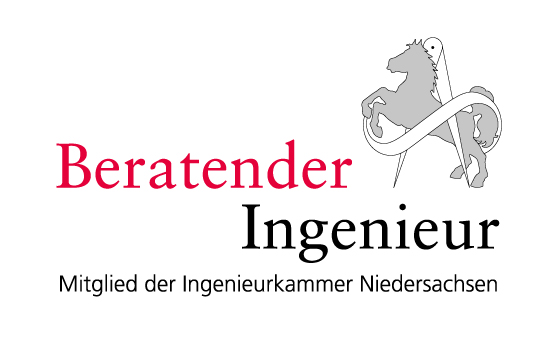
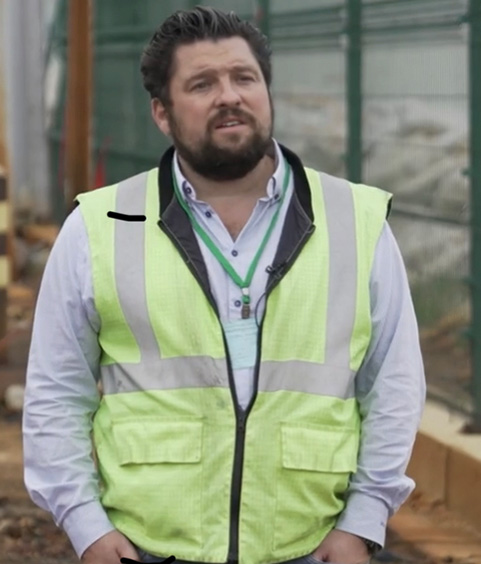
References
Frequently asked questions & answers
What does Trade Waste International do?
Trade Waste International GmbH is, according to § 54 of the Closed Substance Cycle Waste Management Act, as a trader and broker of hazardous and non-hazardous waste, a service provider approved by the competent supervisory authority for the disposal and recycling of all commercial and industrial waste. We find the right recycling for every type of waste and will work for you throughout Germany and internationally. In addition, we repackage your waste and chemicals in accordance with the transport regulations and acceptance conditions of the various acceptance points. Through our large network, we are always able to solve special situations and requirements for you quickly and in compliance with the law.
What is meant by the circular economy?
The circular economy focuses on this in order to extend the life cycle of products and noticeably avoid costs and waste. Because in order to conserve natural resources and produce less waste and harmful emissions and substances, it makes sense to recycle as many products and materials as possible. This leads to a more intensive use of natural raw materials and protects the environment. Legislation aims to promote the circular economy to conserve natural resources.
What is hazardous waste?
The classification of waste according to its hazardousness is a central element of waste management. According to the Federal Environment Agency, the term “hazardous waste” describes various types of waste with defined hazardous characteristics. They pose a risk to health and/or the environment. Special disposal routes and procedures exist for hazardous waste. These ensure safe and environmentally compatible destruction of the pollutants they contain, the Federal Environment Agency adds.
What is the sustainability goal "Sustainable consumption and production"?
With the 2030 Agenda, the global community has set itself 17 ambitious goals – the Sustainable Development Goals (SDGs) – for sustainable development. As Trade Waste International, we are committed to the sustainability goal of “Sustainable Consumption and Production” and through our work we aim to contribute to the sustainable and efficient use of natural resources, ensure new consumption and production patterns, prevent or recycle waste, and safely dispose of hazardous waste.
What is industrial waste?
Industrial waste or commercial waste is waste and production residues generated by industrial activities and includes all materials that become unusable during a manufacturing process. This includes waste from water bodies and wastewater for energy production, waste from the collection of construction and demolition materials such as pipes, building elements, plaster and wood, waste such as plastic, paper, wood and textiles, and waste from film plastics. We find the right recycling for every type of waste.
What are sampling and analysis?
Construction debris and recycled material must always be inspected before recycling or disposal is undertaken. This is because waste must be classified in terms of its material properties and hazardous characteristics in order to be recycled or disposed of properly and without causing harm. Therefore, we can take samples according to the guideline LAGA PN 98 ourselves and also offer the sampling and analysis of your waste according to this guideline through our partner companies. We document all important data determined during sampling according to LAGA PN 98 in a legally compliant manner. In addition, we can provide expert opinions on the classification of waste.
FAQ
Contact
Contact form
Are you interested in our services or do you need further information? Then contact us directly. We are always happy to help you!
Trade Waste International GmbH
Florastr. 4
30900 Wedemark
Germany
Phone: +49 5130 97 27 02-10
Telefax: +49 5130 97 27 02-99

By loading the map, you agree to Google's privacy policy.
Learn more
